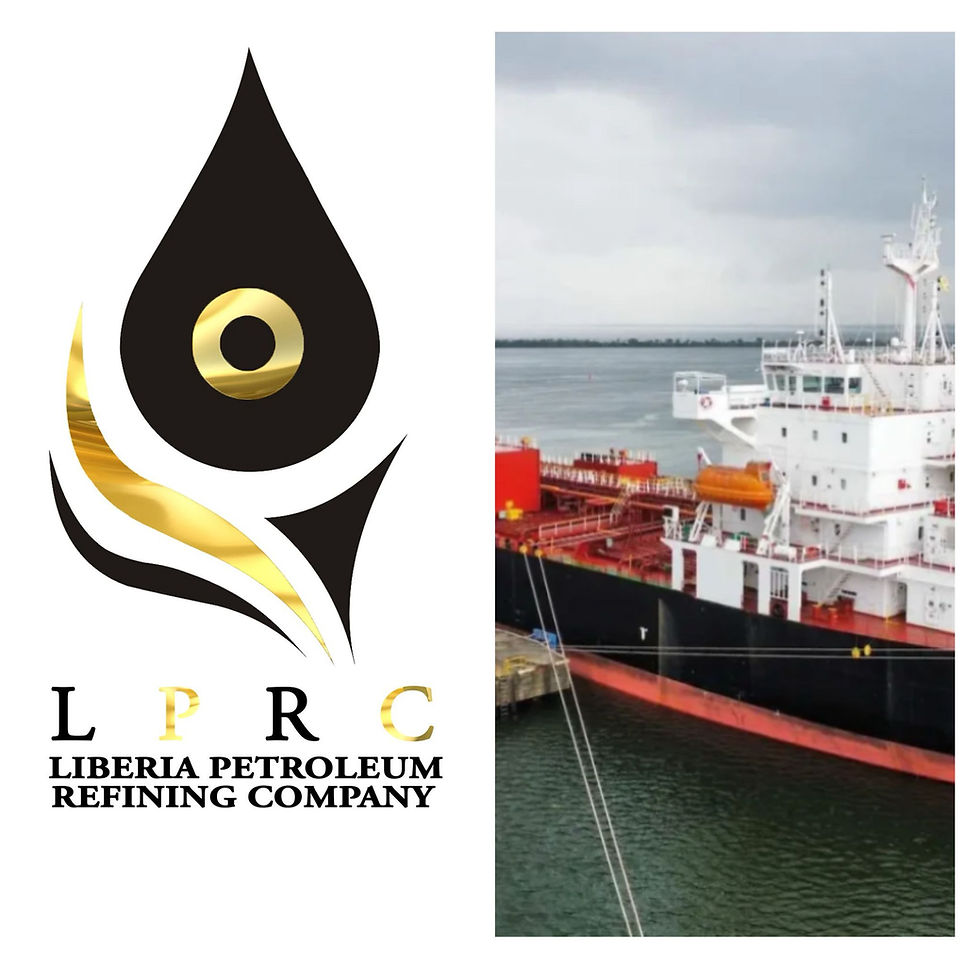Referee and Player: Why LPRC’s Monopoly Feeds Corruption and Self-Enrichment
- Michael T
- Aug 1, 2025
- 3 min read

Liberia Petroleum Refinery Company (LPRC)’s plan to control both petroleum imports and sector regulation is a return to a model that has repeatedly failed across Africa. This approach, at best, always leads to fiscal losses, entrenched corruption, market inefficiency, and economic stagnation12.
Consistent evidence from the African Development Bank (AfDB), International Monetary Fund (IMF), and World Bank shows that giving a government agency both regulatory authority and exclusive import rights—especially with price controls—nearly always breeds market failure and rent-seeking124.
Nigeria’s experience is a typical example: decades of state-managed refineries, dependence on fuel imports, and non-transparent subsidy spending produced chronic shortages, high consumer prices, corruption scandals, and a burden on public finances. Efforts to “correct” these failures with greater monopoly only further crowded out the private sector, leading to job losses, capital flight, and persistent volatility56.
In Angola, Sonangol’s dual role as regulator and market participant fueled inefficiency, politicized appointments, non-transparent contracting, and recurring fiscal crises7. These patterns are nearly identical in Cameroon’s SONARA, as both entities became fiscal drains rather than providers of public benefit8.
Similar monopolistic models in Congo, Mozambique, and Malawi led to restricted market participation, supply disruptions, non-transparent pricing, and elite enrichment at the expense of consumers and the state13. Monopolies often enable politically connected actors to dominate procurement and distribution, entrenching patronage rather than encouraging investment or sector innovation. In many cases, funds earmarked for imports have been misappropriated, sparking fuel shortages and public outcry2.
Uganda’s move in 2023 to give the Uganda National Oil Company exclusive import rights triggered widespread concern: lawmakers and industry warned it would reduce transparency, raise the risk of pricing manipulation, and stifle competition—ultimately harming consumers and discouraging private sector participation910.
Even out of Africa in countries like Nepal for example, the government-owned Nepal Oil Corporation (NOC) retains a monopoly—both legal and practical—over all petroleum imports and downstream distribution. Although reforms have theoretically opened fuel imports to the private sector, in practice the monopoly persists. This has led to inefficiency, chronic shortages, and a lack of accountability; political intervention shields NOC from needed reforms. Consumers face unpredictable supply and pricing, and the monopoly has been widely criticized for failing to modernize or meet demand. Efforts to control losses often see NOC cut supply to force official price increases, aggravating market volatility and harming consumers1112.
Across West Africa, the World Bank has documented that single-buyer models foster high prices and technical inefficiency, as well as instability of supply. By prioritizing political over economic interests, such arrangements block accountability and innovation, with the public bearing the cost313.
Liberia’s own 2009 National Energy Policy already acknowledged that good practice demands a clear separation between operational, policy, and regulatory roles1415. Reinstating the LPRC monopoly goes directly against this principle, reviving a flawed structure that institutional experience has long proven to be unsustainable.
Combining import authority with regulatory power has repeatedly failed414. A transparent and open framework—where regulators regulate, importers compete, and government ensures fairness—remains the only credible path to delivering energy security, economic efficiency, and consumer protection2414.
LPRC's current approach will lead to crowding out the private sector, creating deep conflicts of interest, and opening the door to political interference and corruption124. The World Bank, IMF, and African Development Bank decisively reject the “referee and player” model based on historical data. Their position is grounded in decades of evidence: when state entities both regulate and compete in the market, the results are inefficiency, fiscal loss, and collapsed trust124. This model has no sound economic rationale. Its only defensible purpose is political—and that alone makes it dangerous and unsustainable.
__________________________________________
Get Involved
Do you have additional facts to add to this insight or an opinion you would like to express?
Email Us
Additional Sources
https://www.afdb.org/fileadmin/uploads/afdb/Documents/Publications/Oil%20and%20Gas%20in%20Africa.pdf
https://openknowledge.worldbank.org/bitstreams/94b5f14a-4fad-5486-af8b-8276aeebeaf5/download
https://www.elibrary.imf.org/downloadpdf/display/book/9781589063174/ch07.pdf
https://digitalcollections.sit.edu/context/capstones/article/3938/viewcontent/auto_convert.pdf
https://www.facing-finance.org/files/2013/12/DIRTY_PROFITS_II.pdf




Comments